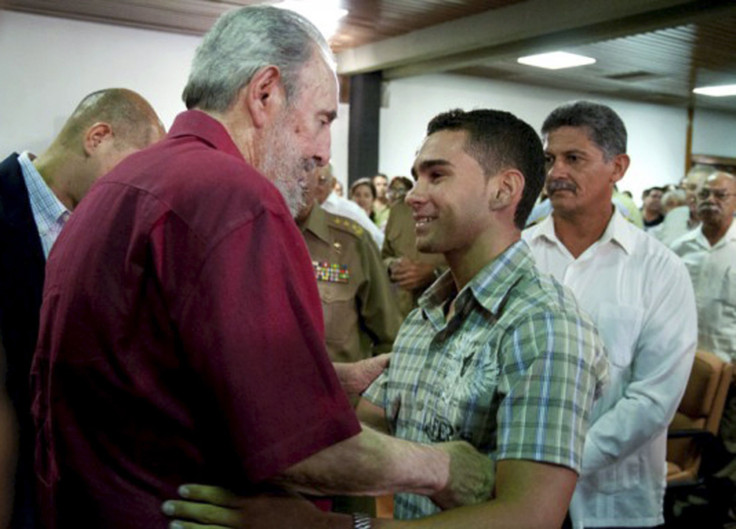
Elián González, the Cuban boy who at age 6 was fished up off the shores of Broward County, Florida before being plucked out of his Miami relatives' arms by Immigration and Naturalization Service (INS) agents and returned to his father in Cuba, turns 20 years old on Friday. In an interview published on Tuesday, by the Cuban blog Quinquenio de Luz -- which is published by journalism students at the University of Matanzas -- the young man who was once the focus of an international battle over custody described his loyalty to Fidel Castro and the Cuban government in near-religious terms. "Fidel Castro is like a father to me. I don't profess any religion, but if I did, my god would be Fidel Castro," he said.
"Fidel Castro means everything to Cuba," the current student of industrial engineering went on. "He means everything to the world because, though he has never received a Nobel Peace Prize, no one has done more for world peace than he has. That's why I believe that, more than a father to me, he ought to be considered a father by the whole world. He has great opponents who regard him as a monster, for the simple fact that Fidel has brought about a new alternative that has stopped their plans for expansion, conquest and development dead in their tracks, for having shown the world's public opinion that it is possible to build a different society, were human wellbeing is the main thing. Fidel has done nothing other than ease the world's suffering."
On Thanksgiving weekend in 1999, González was saved by Florida fishermen after the makeshift boat carrying his mother and 10 other people attempting to immigrate to the United States sank, and everyone but the boy drowned. His father demanded he be returned to Cuba, while his mother's relatives in Miami fought to obtain custody of him -- a standoff which was resolved in rather ugly fashion, when armed INS agents stormed his relatives' house before flying him back to Cuba. His comments on Tuesday come a few weeks after he told Cuban newspaper Girón that the blame for his ordeal rests on the shoulders of U.S. immigration law, specifically the 1966 Cuban Adjustment Act, which affords Cubans who make it to the United States the right to legal residency. "I suffered the consequences of that law in late 1999. The basic rights included in the Convention on the Rights of the Child: the right to be together with my father, the right to keep my nationality, and stay in my cultural context, were violated," he said. The Cuban government has argued that the policy encourages people to undertake dangerous journeys at sea.
RELATED: JFK Assassination Was Cover-Up, Says Fidel Castro; Find Out Who Castro Thinks Was Responsible
© 2025 Latin Times. All rights reserved. Do not reproduce without permission.




